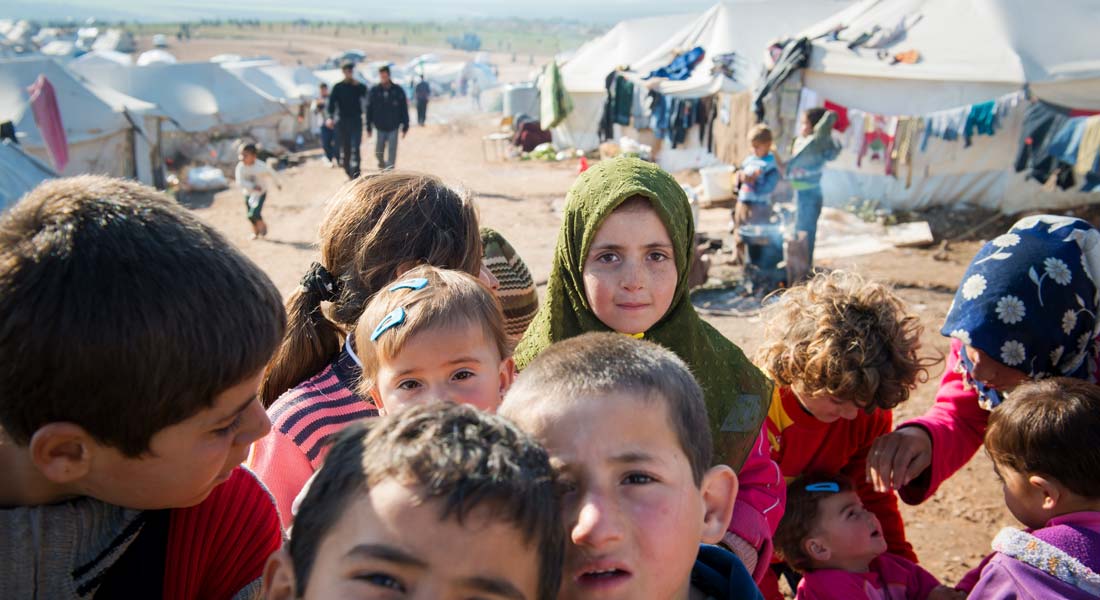Shelter and Settlements in Disasters
Learn how to plan and coordinate shelter needs assessments; and develop strategies and implement plans together with shelter mandated international and national organisations in both natural disasters and conflicts.

Current humanitarian shelter and settlements standards, principles and approaches are the basis of this course. The common phases of the emergency cycle are embraced: emergency shelter, transition shelter, early recovery and reconstruction.
The course covers different shelter and settlements challenges in accordance with local needs and builds on local resources as part of building-back-better strategies.
During the course, you will be equipped to effectively respond to humanitarian shelter and settlements crises. We focus on linking emergency shelter and shelter in recovery in both natural disasters and conflicts. You will be taught common humanitarian assistance methods, guidelines and standards based on a rights-based approach as led by the international humanitarian organisations.
The course consists of 4 weeks of part-time online learning followed by 2 weeks of full-time studies at University of Copenhagen, Denmark and one week of part-time online work to finish a written assignment.
The course is designed to provide you with new learning on strategies, methods and guidelines promoting sustainability in the shelter response from relief to recovery and reconstruction.
You will be prepared to address shelter and settlements challenges in accordance with local needs and build on local resources. It is an important feature of the course to integrate risk and vulnerability reduction strategies in recovery programming.
You will learn to consider local building technologies and materials as part of "building-back-better" strategies.
The course embraces the common phases of the emergency cycle, emergency shelter, transition shelter, early recovery, and reconstruction.
During this course, you will acquire knowledge, tools and analytical skills to address shelter in disasters from relief to recovery.
On completion of the course, you will be able to:
- Have adequate knowledge of the humanitarian response system, the role and functioning of the shelter cluster and the various shelter and settlements typologies, tools, standards and approaches
- Have acquired strategic and practical knowledge of shelter and settlements policies, methods, tools and procedures in the humanitarian response system and will be prepared to practice these in a sustainable manner from relief to recovery.
- Identify key shelter and settlements challenges and opportunities, apply relevant shelter assessment methods and prepare sustainable shelter and settlements strategies relevant to specific intervention phases.
- Demonstrate a strategic and practical knowledge of shelter and settlements policies, methods, tools and procedures in the humanitarian response system and practice these in a sustainable manner from relief to recovery.
Participants must
- Hold a relevant bachelor degree or equivalent
- Have a minimum 2 years of relevant job experience
- Be proficient in English
Find detailed information about the current admission criteria.
Peter Furu, Associate Professor, Global Health Section, Department of Public Health, University of Copenhagen.
Gert Lüdeking, (Co-Course Director) Architect MAA, Guest Lecturer, Global Health Section, Department of Public Health, University of Copenhagen. Former Director of the United Nations Human Settlements Programme (UN-Habitat) Humanitarian Affairs Office in Geneva.
This course is offered as an elective part of the Master of Disaster Management
Priority is given to students enrolled on Master of Disaster Management. Once the enrolled students have been admitted to the course, the remaining seats are distributed on a first-come, first-served basis.
Course details
| Duration: | 7 weeks |
| Dates: | 29 April - 24 May 2024 (online) 27 May - 7 June 2024 (on campus) |
| Place: | University of Copenhagen, Copenhagen, Denmark |
| Course fee: |
EU/EEA citizens
|
| Level and credit: | Master's course; 5 ECTS |
| Examination date: | See exam dates |
| Application deadline: | 4 March 2024 |
| Admission: | To be admitted, you must meet the admission criteria for Master of Disaster Management |
